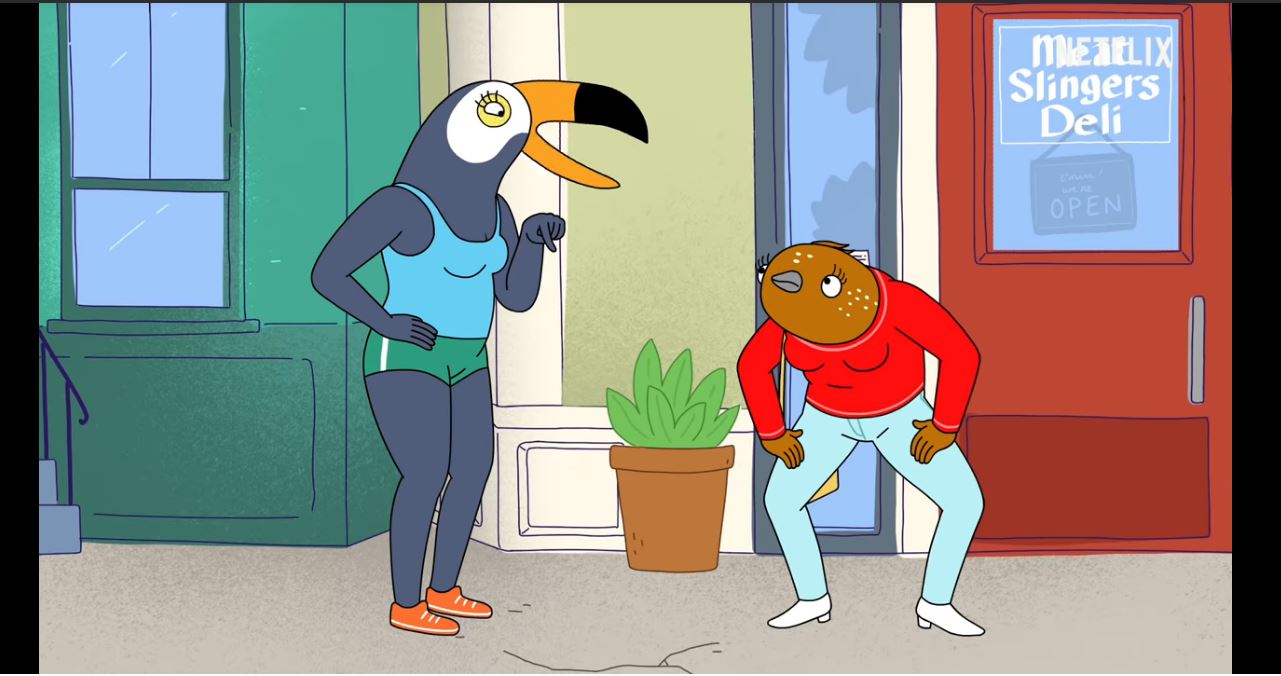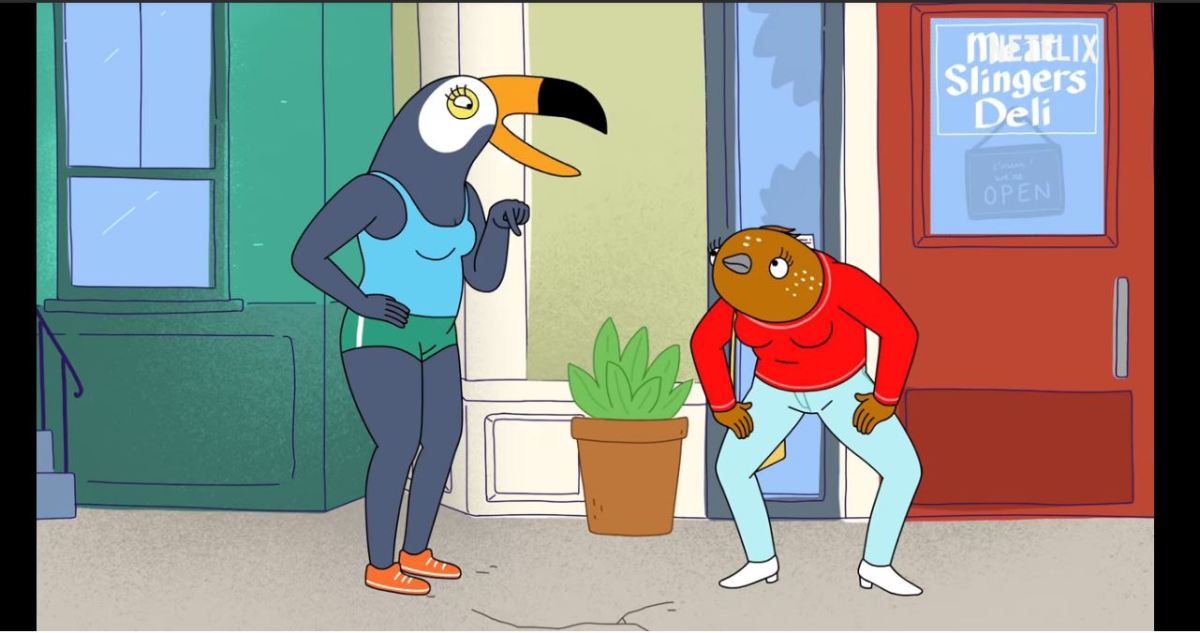Netflix Cancelled 8 Series Created by Women … But Why?
Is it low viewership, a biased algorithm, or simply good old fashioned sexism?


Netflix has been on a tear recently, culling several series from their formidable line-up of shows. Fans were upset to learn that Lisa Hanawalt’s wildly original animated series Tuca and Bertie would not be getting a second season, and that sci-fi cult hit The OA would not be returning for a third season.
But as Ben Travers of IndieWire has noticed, these cancellations seem to disproportionately affect shows created by women. In addition to the two listed above, Netflix has canceled Friends From College, One Day at a Time, Jessica Jones, Orange Is the New Black, Chambers, and Trinkets. In addition, female-driven series She’s Gotta Have It has also been canceled.
View this post on Instagram
Series cancellations are nothing new, and we’ve all felt the sting of losing a beloved show to the cruel whims of the television gods. But these cancellations were often not surprising: with Nielsen ratings available everywhere, you could instantly track a show’s viewership and make predictions as to what would stay and what would go.
But the world of streaming is a different beast, as Netflix keeps their viewership numbers a closely guarded secret, rarely sharing the data unless they’re celebrating the massive success of a series or film. This can lead to fan confusion and outcry, especially for critically acclaimed series or series with a devoted fan base.
These cancellations become doubly frustrating for inclusive series like ODAAT or Baz Luhrmann’s The Get Down, which featured diverse casts and were both certified fresh on Rotten Tomatoes. While Netflix boasts about their diverse line-up, the cancellation of their most diverse series undoubtedly sends a mixed message.
ODAAT’s cancellation was especially surprising, considering that the series had broadened its audience, with the premiere of season 3 doing 82 percent better than the premiere of season 2.
Tuca & Bertie is everything I wanted it to be: beautiful, funny, fresh, loving, horny, weird, experimental, comforting, and deep. The whole team put our hearts and asses into this show, and I’m so proud of it.
— Lisa Hanawalt (@lisadraws) July 24, 2019
But what is to blame for these cancellations? There are a multitude of factors at play here, not the least of which is the changing financial structure of Netflix. The streaming giant spent $12 billion on content in 2018, and is on track to up that to $15 billion this year. But while they are spending more money, they are also scaling back projects and limiting many series to 2 to 3 seasons.
Netflix spent its early years establishing themselves as a major player in television, and thanks to series like House of Cards, Orange Is the New Black, and Stranger Things, they’ve succeeded. Netflix has done so well in fact, that their competitors have been building their own competing streaming services (Disney+, HBO MAX, NBCUniversal) and pulling their own content from Netflix. It’s a blow to Netflix, as some of their most-watched series, like Friends and The Office, will be leaving. We’ve already seen the fallout from the rise of Disney+, which led to the dissolution of the Marvel/Netflix partnership.
Then there’s the issue of promotion: with so many series coming out of Netflix alone (not to mention the overwhelming amount of content available across all platforms) it takes a lot of noise (and ad dollars) to get a show into the public consciousness. Many have criticized Netflix for overspending to promote their flagship shows while giving newer, smaller series short shrift.
But it’s not only a question of advertising, but the visibility of these series on Netflix itself. Thanks to the almighty and mysterious algorithm, smaller series are not getting the on-site promotion they deserve. Tuca and Bertie creator Lisa Hanawalt even complained that she couldn’t find the show she herself created:
I… had to search for it too 😂
— Lisa Hanawalt (@lisadraws) July 26, 2019
And they’re not alone: many viewers who watched BoJack Horseman said that Tuca and Bertie was never recommended to them (Hanawalt worked on BoJack and Tuca was produced by BoJack creator Raphael Bob-Waksberg). Add to that the racial bias inherent in the algorithm, and you have a distressing pattern that puts new series at a disadvantage.
And then, of course, there’s the unquantifiable factor of sexism: overall, men’s shows are given a greater chance to succeed than women’s shows. And this isn’t a Netflix problem: it’s a women in entertainment problem. As long as men control the majority of studios and networks, there will always be bias in programming. Until women CEOs and executives reach parity, the odds will always favor male series, creators, writers, and stars. And that’s a massvie systemic problem worth tackling.
(via IndieWire, image: Netflix)
Want more stories like this? Become a subscriber and support the site!
—The Mary Sue has a strict comment policy that forbids, but is not limited to, personal insults toward anyone, hate speech, and trolling.—
Have a tip we should know? [email protected]
